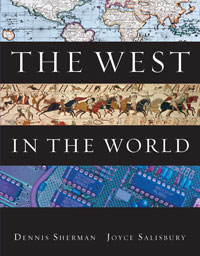1 A) Great Britain, Germany, Russia, and Spain. B) Russia, Prussia, Great Britain, and Austria. C) Prussia, Great Britain, the Netherlands, and Russia. D) Austria, Russia, Spain, and Great Britain. 2 A) the Vienna Alliance. B) the Holy Alliance. C) the Quadruple Alliance. D) the Frankfurt Alliance. 3 A) Edmund Burke. B) Joseph de Maistre. C) Louis de Bonald. D) John Stuart Mill. 4 A) workers and artisans B) monarchs, aristocrats, and clergy C) the upper and lower middle class D) All these answers are correct. 5 A) population would increase faster than food supplies, resulting in poverty. B) the government should limit its role in the marketplace. C) wages would always decline to subsistence or below, since high wages led to population increases that saturated the labor market. D) the government should set a minimum wage. 6 A) John Locke. B) Georg Wilhelm Friedrich Hegel. C) Frederick Engels. D) Francis Bacon. 7 A) to centrally direct all economic activities B) to set protective tariffs C) to have as limited a presence as possible D) to ensure social welfare measures for workers 8 A) the Holy Alliance. B) the Prussian state. C) the secret society Young Germany. D) German folk culture and oral traditions. 9 Faust , epitomize the ideals ofA) conservatism. B) liberalism. C) nationalism. D) romanticism. 10 phalansteries in whichA) members would pool their resources. B) women would be responsible for domestic duties. C) the institution of marriage would be upheld. D) men and women would live in separate spheres. 11 A) religious beliefs. B) economic interests. C) nationalism. D) primitive impulses. 12 A) issuing the Carlsbad decrees. B) creating the Zollverein . C) organizing the Junkers. D) treating France harshly as an example. 13 A) Russia. B) Belgium. C) Britain. D) France. 14 A) Piedmont B) Greece C) Belgium D) the Netherlands 15 A) a republic. B) a democracy. C) an empire. D) a constitutional monarchy. 16 A) granted universal manhood suffrage. B) lowered property qualifications for voting. C) conceded universal suffrage. D) protected the power of the "rotten boroughs." 17 A) Communist Manifesto .B) Chartist movement. C) Luddite movement. D) Worker's Union. 18 A) divisions between liberals and conservatives. B) the German core's hopes for a unified state. C) non-German nationalities who were demanding greater autonomy and, in some cases, independence. D) the end of the tariff-free trade zone. 19 A) the Frankfurt Assembly. B) the Congress of Vienna. C) the House of Lords. D) the Congress of Berlin. 20 A) the rural and urban populaces. B) the upper and lower classes. C) liberals and socialists. D) Louis-Napoleon Bonaparte and Louis-Philippe. 21 A) After 1848, nationalism was increasingly associated with liberalism. B) Nationalists had little use for history. C) Nationalism created problems for multi-national empires. D) Nationalism arose latest in France. 22 A) It was firmly rooted in Enlightenment ideology. B) It looked forward to the future. C) It rejected religion and religious sentiment. D) It stressed emotionality over rationality.





